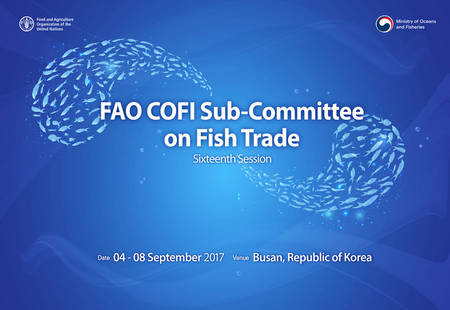16th COFI-FT: Good Governance key to promote sustainability in fisheries values chains

BUSAN – 4-8 September 2017. The FiTI International Secretariat participated in the Sixteenth Session of the COFI Sub-Committee on Fish Trade in the Republic of Korea.
Fish and fishery products are among the most traded food commodities worldwide. Trade plays a major role in the fishery and aquaculture sector as a creator of employment, food supplier, income generator, contributor to economic growth and development, and to food and nutrition security. While fishery trade has expanded considerably in recent decades, it has been experiencing a slowdown in the last two years. Nevertheless, for many countries, fishery exports remain essential to their economy.
The session highlighted various issues of relevance to international trade, which are also addressed within the FiTI Standard, such as
- the relationship between fisheries management policy, allocation of rights and the economic sustainability of the sector;
- illegal, unreported and unregulated (IUU) fishing and its impact on the value chain; and
- the role of the small-scale sector in fish production and trade.
Furthermore, the FiTI was highlighted as a multi-stakeholder activity to promote social sustainability in fisheries value chains, as the FiTI Standard includes, inter alia, information relating to enforcement of labour standards (COFI:FT/XVI/2017/5).
The FiTI International Secretariat also conducted a dedicated side event regarding opportunities of the FiTI – Driving change in fisheries trade through transparency.
This side event was chaired by Mr. Sven Biermann, Director of the FiTI International Secretariat, and included interventions by Mr. Audun Lem, FAO; and Mr. Suseno Sukoyono, Head of the Indonesian Delegation. The event was used to share insights about the challenges to increase transparency in fisheries in the context of fish trade and general fisheries management and to discuss how a multi-stakeholder approach could be a possible avenue of solution.